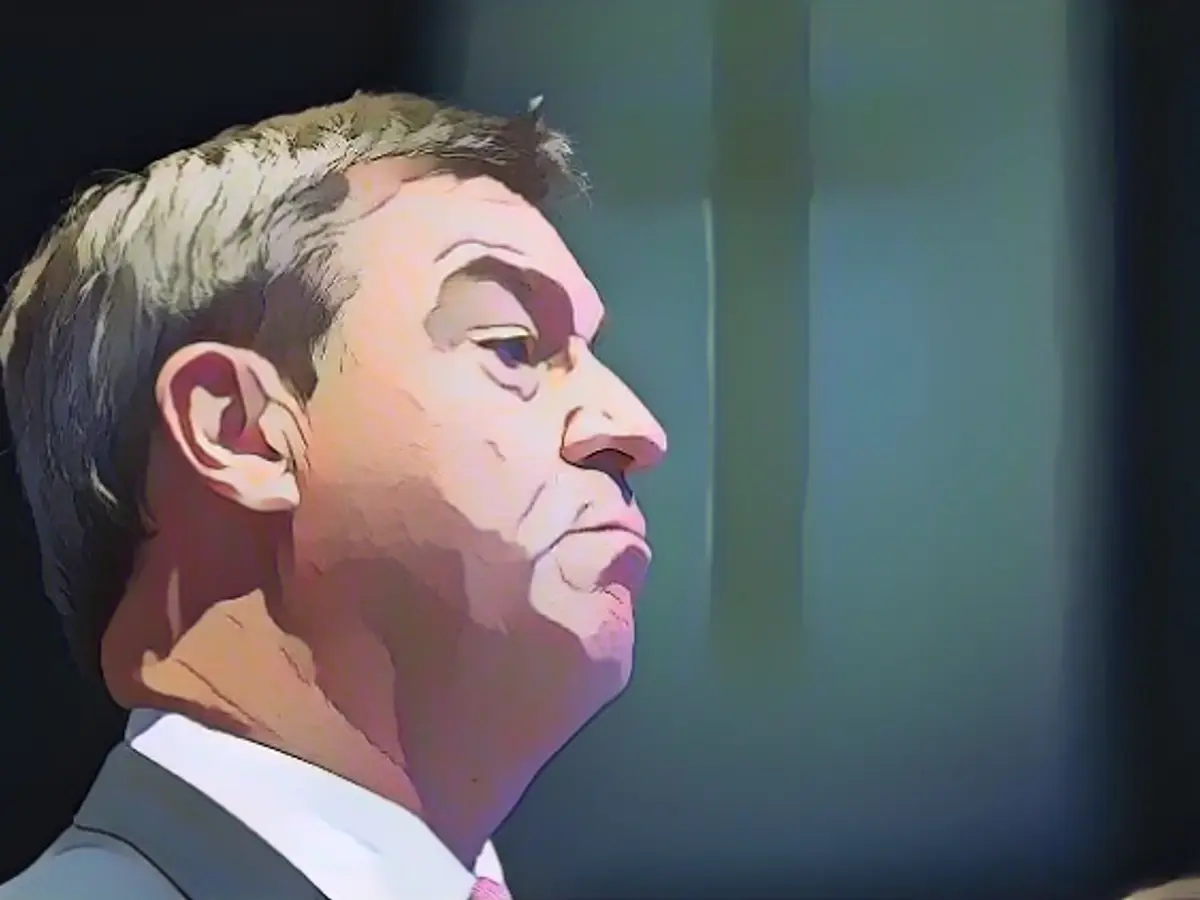Söder calls for abolition of the new Bundestag electoral law
The new federal election law, which imposes a strict five percent threshold, could be particularly dangerous for the CSU. Party leader Söder is therefore threatening that the CSU will only enter into a coalition at federal level if the electoral law is changed again.
CSU leader Markus Söder never wants his party to form a coalition in the federal government again unless the new federal electoral law is abolished. "The CSU can only participate in government if the changes to electoral law are reversed. That is a basic condition for a coalition," said the Bavarian Minister President. The CDU/CSU is hoping for a supreme court ruling on the amendment to the electoral law in 2024. The Bavarian state government and the CSU as a party had described the new rules as "unconstitutional" and each filed a complaint with the Federal Constitutional Court.
The "traffic light" parliamentary groups had passed the reform in the summer against vehement opposition from the CDU/CSU. They justified this with the intention of reducing the size of the Bundestag. With currently 736 members, the Bundestag is the largest freely elected parliament in the world. The new electoral law now caps the number of seats at 630.
Voting will continue to be by first and second vote after the amendment. However, there are no more overhang and compensatory mandates. In future, only a party's second vote result will be decisive for the number of seats. As a result, successful constituency candidates may not receive their direct mandate. The basic mandate clause will also be abolished. According to this clause, parties previously entered the Bundestag with the strength of their second vote result even if they were below the five percent threshold but won at least three direct mandates.
If the CSU were to fall below the five percent threshold in the election, it would no longer be represented in the Bundestag, even if it won almost all direct mandates in Bavaria, as it did in the last Bundestag election. In order for the ruling to be relevant for the Bundestag elections, the decision would have to be made as soon as possible in 2024. So far, however, no timetable has been announced by Karlsruhe.
Söder believes the CDU/CSU is well positioned for 2024, more united than it has been for a long time and ready to govern immediately: "We are far ahead in the polls and are about as strong as all three traffic light parties combined. People trust us to solve the country's problems best." In contrast, the traffic light party is completely divided and no longer able to keep to its own agreements. "It would therefore make sense for the Chancellor to put the question of trust to the people." Söder once again called for early elections on June 9, together with the European elections.
Read also:
- Year of climate records: extreme is the new normal
- Precautionary arrests show Islamist terror threat
- UN vote urges Israel to ceasefire
- SPD rules out budget resolution before the end of the year
The CSU, led by Markus Söder, strongly opposes the new electoral law due to its strict five percent threshold, as it could potentially exclude the party from the German federal parliament in future elections. Consequently, Söder has announced that the CSU will only enter into a coalition at the federal level if the electoral law is changed again.
Source: www.ntv.de








